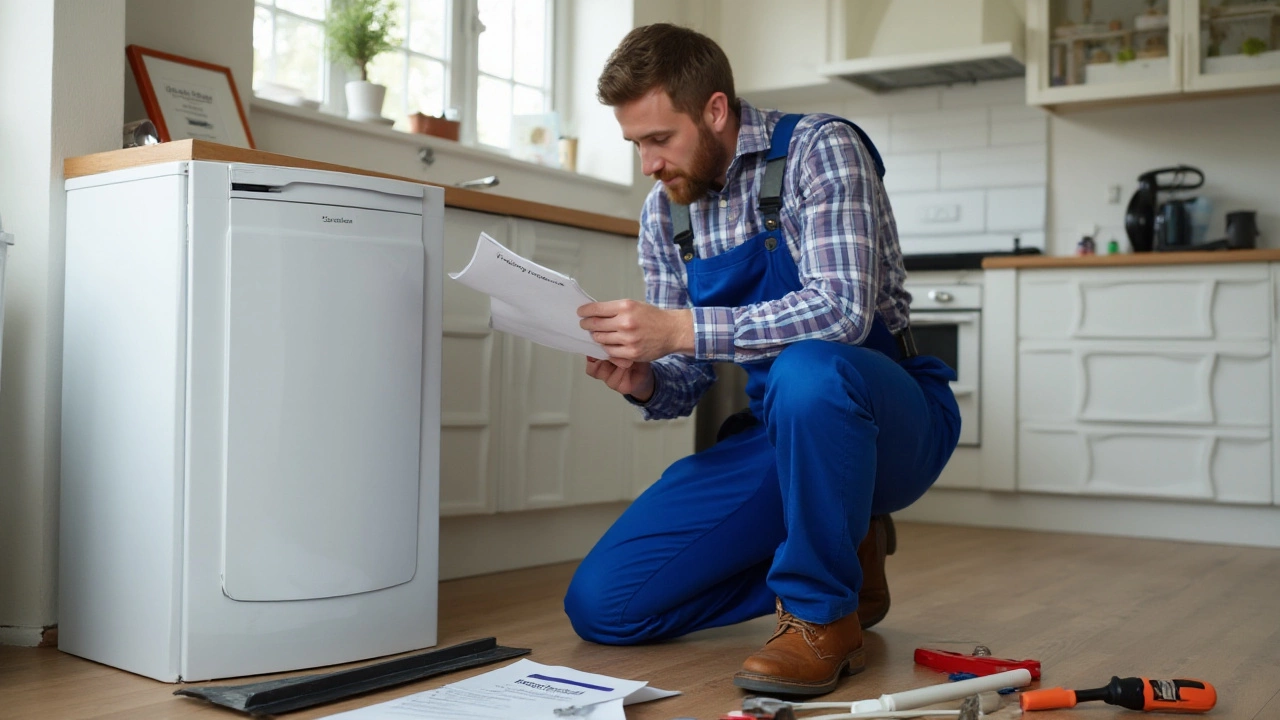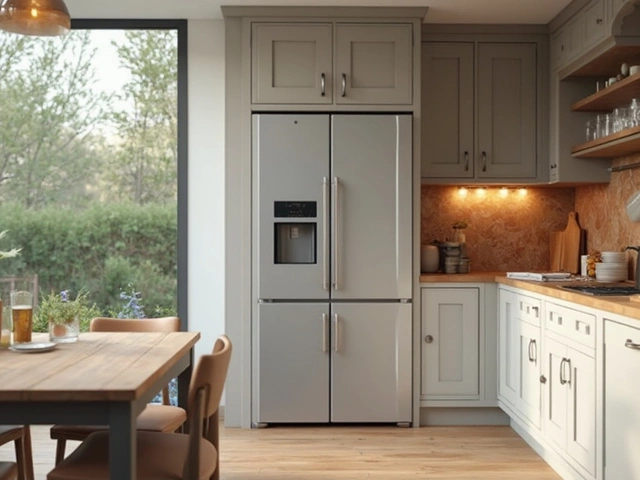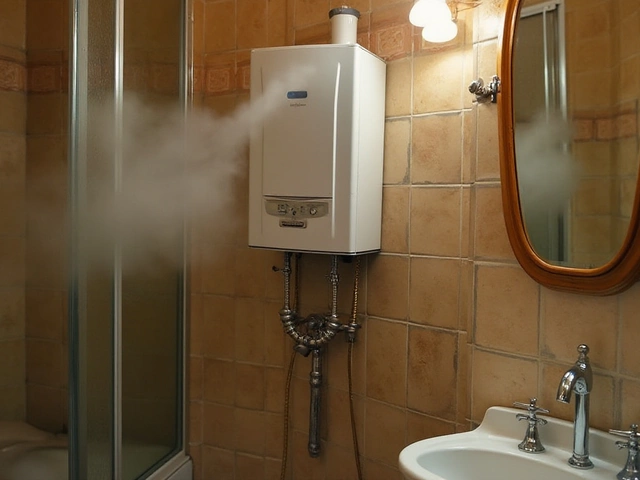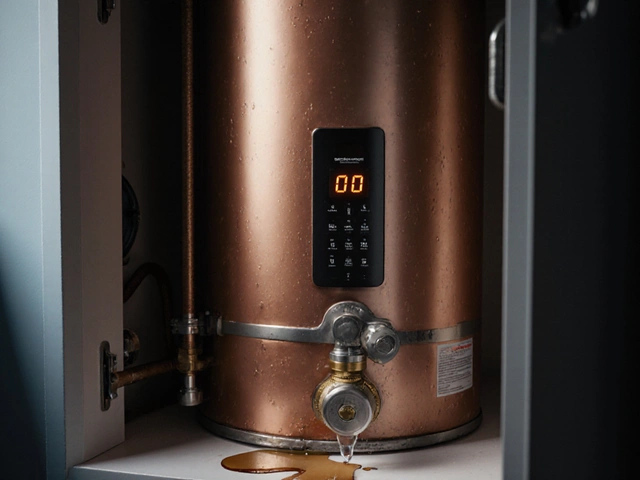Got a heating system that’s acting up? You’re not alone. Whether it’s a heat pump that won’t blow warm air, a boiler making strange noises, or a water heater that keeps resetting, the problems are usually fixable with a little know‑how. Below you’ll find straight‑forward advice that saves you a call to a tradesperson and keeps your home cozy.
Heat pumps are great for saving energy, but they need regular attention. A common issue is the unit not blowing warm air. First, check the thermostat setting – make sure it’s on heating mode and the temperature is higher than the room. Next, look at the air filter; a clogged filter limits airflow and forces the pump to work harder. A quick vacuum or a wash (if reusable) usually solves the problem.
If the pump won’t cool in summer mode, the refrigerant might be low or the outdoor coil could be dirty. Turn off the power, clean the coil with a garden hose (no pressure washer), and let it dry before restarting. For older units, the lifespan is a key factor. Air‑source pumps typically last 10‑15 years in the UK, while ground‑source models can reach 20 years if serviced annually. Regular maintenance – a professional check once a year and a filter clean every few months – adds years to that life.
When should you consider replacing a heat pump? If it’s more than 12 years old, efficiency has dropped below 300% (COP), or repair costs exceed one‑third of a new unit, replacement is smarter. The cold‑weather tip: if temperatures fall below -5°C for extended periods, a supplemental electric heater helps keep the pump from over‑working.
Boilers are the heart of most UK homes, and a few warning signs tell you when help is needed. Listen for a loud banging or whistling noise – that usually means limescale buildup or a failing pump. Look for water stains around the boiler and check the pressure gauge; pressure below 1 bar suggests a leak or the need to top up the system.
Cold showers? Start with the hot water cylinder. If the water heater is constantly resetting, the thermostat may be faulty, or the heating element could be glazed with mineral deposits. Before you call a plumber, turn off the power, let the unit cool, and remove the access panel. A quick visual inspection for corrosion or loose wires can save a call‑out.
Flushing the water heater once a year removes sediment that lowers efficiency. Fill the tank with fresh water, run a brief heating cycle, then drain it completely. This simple step can extend a heater’s life by several years and keep your bills down.
When you hear the boiler make a gurgling sound, it’s often trapped air in the radiators. Bleed them with a radiator key until water flows steadily. This improves heat distribution and reduces the workload on the boiler.
Remember, safety first. If you ever smell gas, see a leak, or notice the boiler switching off repeatedly, call a Gas Safe engineer right away. Trying to fix a gas‑related issue yourself can be dangerous.
By keeping an eye on filters, pressure, and regular flushing, most heating system hiccups can be tackled at home. When in doubt, a short service call is cheaper than waiting for a breakdown in the dead of winter.

Thinking about how long your boiler will keep working? This article explains the real lifespan of boilers, the factors that affect how long they last, and how to spot when yours might be on its last legs. You'll get practical tips for stretching out your boiler's life and advice about when it's smarter to repair or just replace. Stay warm and avoid surprise breakdowns with these straightforward facts.

Plumbers are often the go-to professionals for a wide range of home repairs, but when it comes to boilers, it's essential to know their scope of work. This article delves into whether plumbers can actually handle boiler installations and replacements. You'll uncover what specific skills and certifications are required for boiler work, why hiring a specialized heating engineer may be recommended, and the potential risks of using underqualified technicians. Whether you're considering a new boiler or need an existing one serviced, understanding who is best suited for the task is crucial.

Looking for a reliable refrigerator that won't leave you struggling with frequent repairs? Discover which fridge brands are known for their durability and efficiency. This article breaks down the brands with the least reported problems, providing valuable insights from customer reviews and expert opinions. Learn practical tips on how to choose a fridge that suits your needs and keeps your kitchen running smoothly.

When your hot water heater isn't supplying the steamy showers you're used to, it might be due to a faulty heating element. This article dives into common indicators of a malfunctioning water heater element, such as unusual noises, inconsistent water temperatures, and an unexpected spike in your energy bills. You'll learn how to diagnose potential issues and gather insights on troubleshooting these problems. While some fixes might require professional expertise, understanding the basics can help you pinpoint the root of the problem and decide the best course of action. Get ready to reclaim your warm water comfort!

Spot the top warning signs of a failing hot water heater, from strange noises and leaks to temperature swings and error codes, plus practical fixes and when to call a pro.

Thinking about swapping out your electric oven? This article covers how tough the job really is, where people usually get stuck, and what you actually need to know. We break down what tools you really need, what pitfalls you can avoid, and when you should probably call someone who’s done it before. Get ready for straight talk—no tech jargon, just real advice for regular folks. Whether you DIY or call a pro, you’ll walk away ready to make a smart decision.

Learn how to spot a malfunctioning heat pump, recognize warning signs early, and troubleshoot issues to keep your home comfortable and energy bills in check.